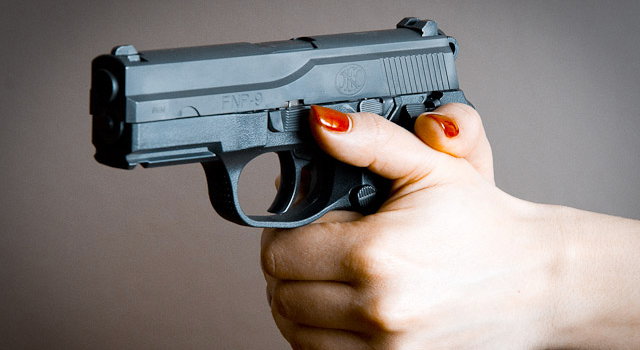Choosing the right defensive firearm is a significant decision that involves careful consideration of various factors, including personal needs, legal constraints, and practical usability. Here we will discuss the process of selecting a firearm that meets your defensive needs effectively.

Understanding Your Needs
Before diving into the myriad of firearm options available, it’s crucial to assess your specific needs. Ask yourself what you intend to use the firearm for. Is it for home defense, personal carry, or both? The environment in which you plan to use the firearm significantly influences the type of firearm that will best suit your needs. For example, a compact handgun may be more suitable for personal carry, while a shotgun or rifle might be preferred for home defense due to their stopping power and range.
Legal Considerations
It’s imperative to familiarize yourself with the local and federal laws regarding firearm ownership, carry permits, and use. Laws vary significantly by location and can affect your choices. For instance, some areas may have restrictions on the types of firearms you can own or the capacity of magazines you can legally possess. Ensuring that you are within the law is a crucial first step in choosing a defensive firearm.
Ergonomics and Fit
The right firearm should feel like an extension of your body. It’s essential to consider the ergonomics of the firearm and how well it fits in your hand. A gun that is too large or too small can be difficult to operate efficiently, especially under stress. When possible, physically handle multiple firearms to gauge comfort, ease of operation (such as pulling the trigger, loading, and unloading), and accessibility of controls like safety switches and magazine releases.
Caliber and Ammunition
The caliber of a firearm refers to the diameter of the barrel and, consequently, the size of the bullet that it fires. Popular calibers for defensive use include 9mm, .40 S&W, and .45 ACP for handguns, and .223 Remington and 12 gauge for rifles and shotguns, respectively. The choice of caliber can affect the firearm’s stopping power, recoil, and capacity. It’s essential to choose a caliber that you can shoot accurately and comfortably. Additionally, consider the availability and cost of ammunition, as this will affect your ability to practice and maintain proficiency with your firearm.
Reliability and Maintenance
A defensive firearm must be reliable. Research the track record of different brands and models to ensure you choose a firearm known for its dependability. The Beretta M9A3 is an example of a firearm that combines reliability, ergonomic design, and versatility, making it a popular choice among both military and civilian users for defensive purposes. Firearms also require regular maintenance to function correctly, so consider the ease of cleaning and maintaining any firearm you’re interested in. A gun that is complicated to disassemble and reassemble may not be the best choice if you’re not willing to invest the time and effort required for its upkeep.
Training and Proficiency
Owning a defensive firearm comes with the responsibility of being proficient in its use. Before making a purchase, consider the availability of training resources, such as local shooting ranges, instructors, and defensive shooting courses. Continuous training and practice are essential to ensure you can effectively use your firearm when it matters most.
Budget and Accessories
Your budget will inevitably play a role in your choice of defensive firearm. However, it’s important not to compromise on reliability and safety for the sake of cost. Additionally, consider the cost of necessary accessories, such as holsters, extra magazines, and sights, which can add up. Investing in quality accessories can enhance the functionality and effectiveness of your firearm.
Try Before You Buy
If possible, test fire different firearms at a local range that offers rental options. Shooting a firearm can provide invaluable insights into its recoil, ease of use, and suitability for your needs that you simply can’t get from handling it in a store.
Making a Decision
After considering all the factors above, narrow down your options to a few models that meet your needs, fit well, and fall within your budget. Research reviews and testimonials from other owners and consider seeking advice from experienced firearms instructors or professionals.
Conclusion:
Choosing a defensive firearm is a deeply personal decision that requires careful thought and consideration. By understanding your needs, researching options, and seeking hands-on experience, you can select a firearm that provides the reliability, safety, and peace of mind needed for defensive purposes. Remember, owning and carrying a firearm also carries the responsibility of continuous learning and practice to ensure safe and effective use.